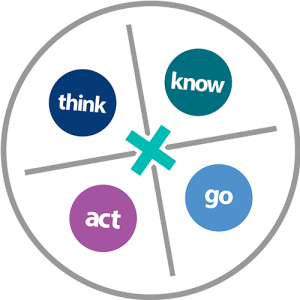This white paper considers innovative measures—specifically metacognitive assessments, performance assessments, and the California State Seal of Biliteracy—as potential measures to be included in California’s college and career indicator. The paper begins by describing the criteria that each innovative measure is evaluated against. Next, innovative measures are evaluated against the framework being used for all five categories of potential college and career preparedness measures. This white paper concludes with a summary that identifies major strengths, weaknesses, and trade-offs.
From the Summary:
Overall, the research suggests that metacognitive assessments hold great potential as a means to drive improvement in student achievement. Table 3 presents a summary of the evaluative criteria ratings. Metacognitive assessments were rated strongest on being understandable, recognizing both postsecondary pathways, and the potential for universal student coverage. Metacognitive skills are strongly related to college and career success, but less evidence is available for metacognitive assessments. A relative unknown is the stability of large-scale metacognitive assessments.
The standards and accountability movement has tended to exclude measures of metacognitive skills even though many standards imply that such skills are necessary to master the standard. As a result of the NCLB flexibility waiver, the California CORE districts are set to become the first large-scale test of the use of metacognitive assessments for accountability purposes. Many valid and reliable metacognitive assessments are currently available to educators and policymakers, but more research and experimentation is necessary to understand fully the value and limitations of administering metacognitive assessments and using results for accountability purposes.
Metacognitive assessments have the advantage of producing actionable information that students and educators can put into practice immediately to improve achievement. Metacognitive skills generally are connected with success in college, careers, and life. These skills and their attendant measures are important and often overlooked components of effective learning systems.
Metacognitive assessments provide three distinct advantages over standardized assessments by (a) producing actionable information that students and educators can put into practice immediately to improve achievement; (b) connecting to success in college, careers, and life; and (c) being understood by all stakeholders as having utility both within and outside school settings. When a state operationalizes metacognitive skills as part of its accountability system, these skills will realize increased importance resulting in increased technical quality for their attendant measures. Until then, metacognitive skills may remain as overlooked components of effective learning systems.
CCIndicator_InnovativeMeasures.pdf (2785 downloads )Authors: David Conley, Paul Beach, Michael Thier, Sarah Collins Lench, Kristine Chadwick




